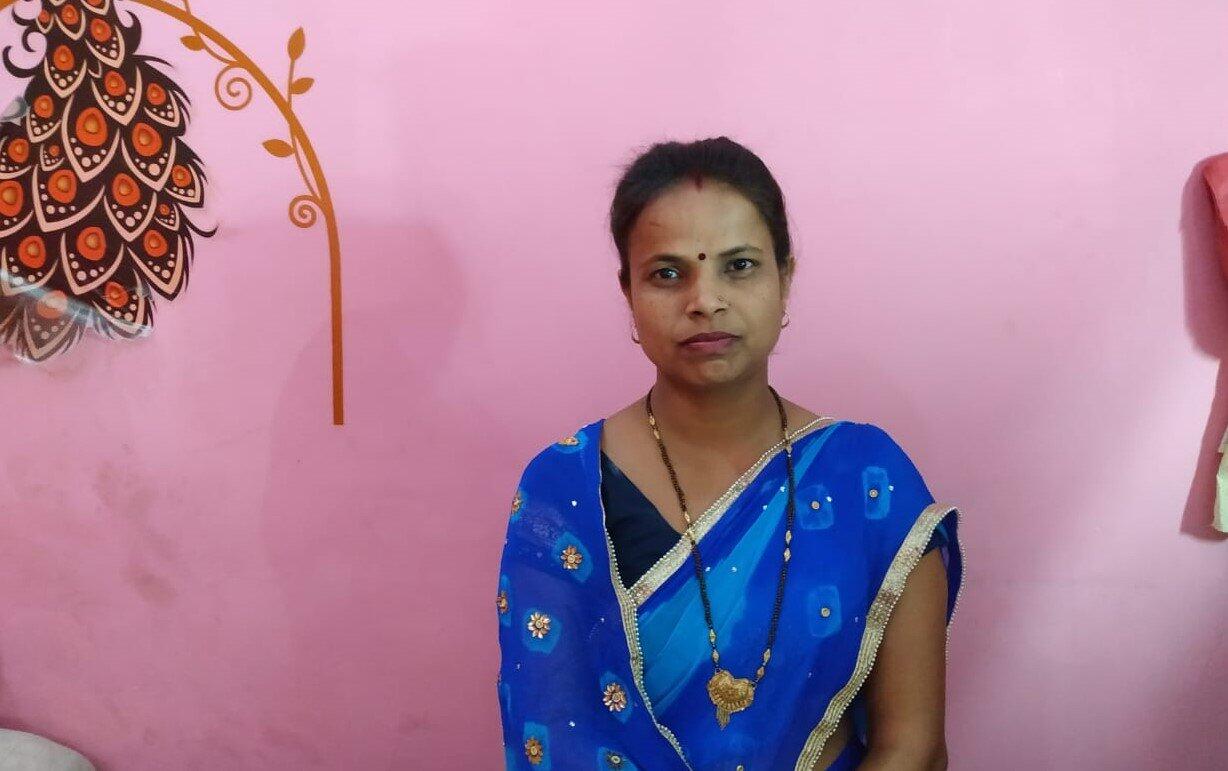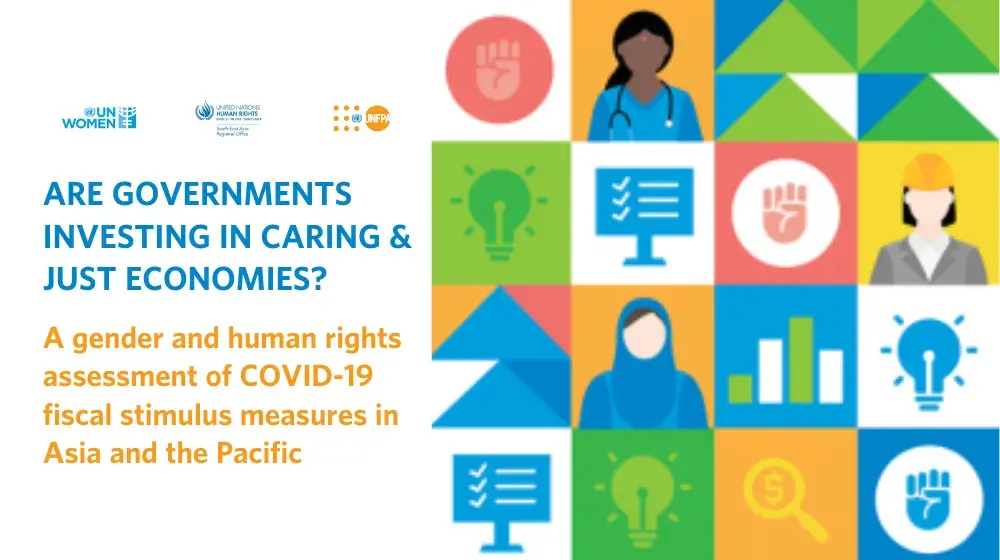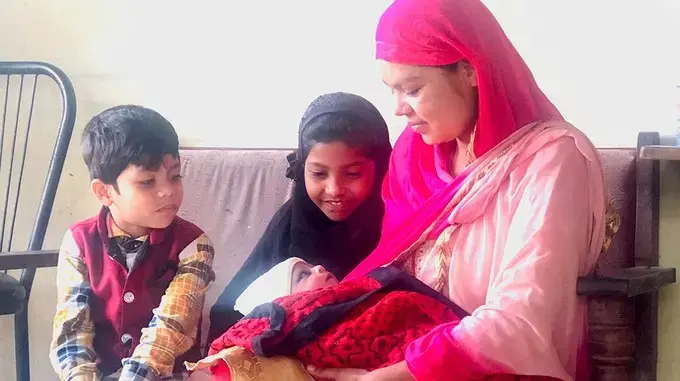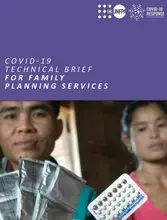The COVID-19 crisis has taken a staggering toll worldwide. As countries are under lockdown and health systems are struggling to cope, sexual and reproductive health services continue to be affected.
Despite these very real and tangible challenges, there are courageous women who are doing exemplary work to ensure that the reproductive health and rights of women are not neglected during this pandemic.
On the occasion of World Population Day, we bring to you stories of the selfless services provided by three women frontline workers from India who are deeply committed to their duty and this cause.
The corona warrior
38-year-old Kavita Agarwal is also an ASHA facilitator in Madhya Pradesh with over 15 years of experience. She leads a team of 14 ASHAs whom she guides in their work.
Kavita is a part of the state government-led campaign against COVID-19 that is taking place from July 1 to 15. As part of this campaign, she counsels over 30 houses each day equipping them with information on how to safeguard against COVID-19.
“My regular shift is for six hours but these days due to the corona pandemic, I can be called for duty anytime, even in the late evening. I have the full support of my husband and children who are fully aware of how important my duty is during this time.”
With migrant populations returning home, the workload has increased manifold. But the hardworking and courageous frontline cadre of ASHAs are prepared for this challenge.
“Initially I was looking after the healthcare of only women and children. Now I look after the health of everyone,” Kavita says proudly.
Kavita and her team obtain a complete medical history of pregnant women when they return to their native villages, ensuring that they get tetanus vaccinations and iron/folic acid tablets. Her team also gives iron/folic acid tablets to young girls and women to prevent anaemia.
“We have a tough job because migrants fear that we will quarantine them and put them in isolation. But consistent effort and counselling have made people more receptive,” she explains
Kavita is a true corona warrior working tirelessly to provide information and healthcare for the wellbeing of women and girls.
Duty before self
“I have always wanted to serve our society. I consider saving lives my first and foremost duty.”
49-year-old Anjana Tiwari, who has completed two post-graduation degrees, has dedicated her life to the service of pregnant women and young girls. She is a resident of Bagota, a village in Madhya Pradesh, a state which lies in the heart of India.
Anjana is an Accredited Social Health Activist (ASHA) facilitator. An ASHA worker’s tasks include motivating women to give birth in hospitals, bringing children to immunization clinics, encouraging family planning, treating basic illness and injury with first aid, keeping demographic records and improving village sanitation.
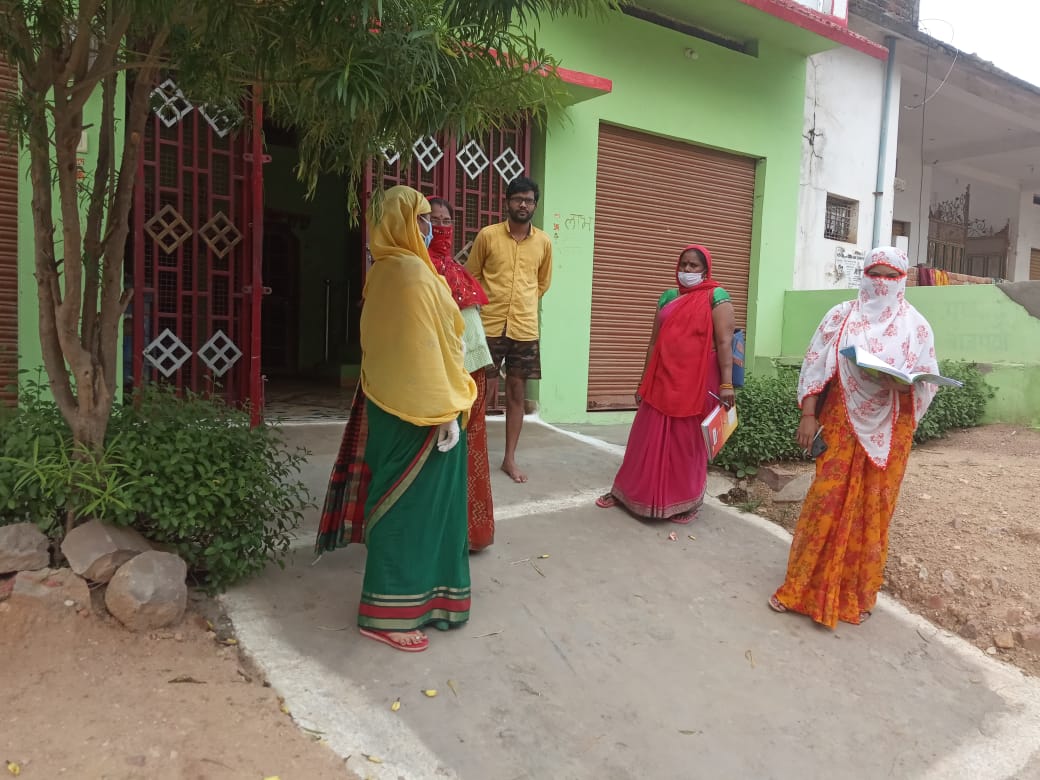
Credit: UNFPA India
She recognizes how crucial it is to ensure access to and availability of healthcare to women and girls at the grassroots level during the pandemic.
Following COVID-19 lockdowns in India, a phenomenon of reverse migration was seen when thousands upon thousands of daily wage laborers left the big cities to return to their villages because of lack of work and means of subsistence.
Anjana recalls two incidents that occurred during this time. She came in contact with two women, both in their seventh month of pregnancy, who had returned from Delhi.
“I immediately advised them to go into isolation for 14 days. I also gave them iron/folic acid tablets for their wellbeing during pregnancy.”
“When I found out that they were not vaccinated against tetanus which is essential during pregnancy, I made sure that the vaccine was administered,” she adds. “We conducted regular check-ups for these two women and I am happy to report that their pregnancies are going well.”
A huge challenge that Anjana faced during her routine visits to the village was that she was not allowed into people’s homes on several occasions because of the fear that as a frontline worker she would put them into quarantine.
She found an innovative approach to solve this problem. In some cases, she took the help and support of neighbours to disseminate advice and information to these pregnant women, and sometimes she asked the women to talk to her through their windows so that she could counsel them.
“I advise them on how to stay safe and follow precautions. I also tell them to eat nutritious food such as lentils and green vegetables to keep themselves and their baby healthy.”
Even though the work is physically and emotionally exhausting, the fact that she is able to help these women during this critical time is what keeps her motivated to continue with her duties.
Rising to the occasion
“I always feel motivated to provide pregnant women with healthcare and medical facilities during this challenging time.”
52-year-old Auxiliary Nurse Midwife (ANM) Kiran Kumari is from Sheikhpura, Bihar, a state in the eastern part of India where UNFPA in partnership with their implementing partner Plan India is working closely with frontline workers to ensure the sexual and reproductive health and rights of women and girls.
Kiran is a dedicated professional with many years of experience in maternal and child health.
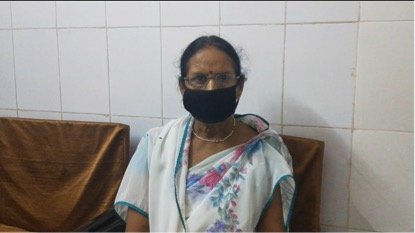
“During the lockdown, I was assigned to work in the labour room for institutional deliveries. I helped many women with childbirth and also counselled the relatives of the new mothers on social distancing rules during the pandemic to protect themselves from the disease. Whenever an ASHA informed me about a woman going into labour, I would promptly arrange an ambulance for her to go to the Healthcare Centre.”
Kiran never lets the difficulties she faces during the pandemic dishearten her and continues to do her work diligently, ensuring that she reaches her duty station on time and to provide ambulance support during an emergency.
“My family and children are proud of me and provide me with immense support which helps and motivates me every day. ”
These women frontline workers, who symbolise thousands of others like them nationwide, selflessly providing services that go beyond the call of duty, are in no small measure contributing towards India’s efforts in ensuring healthcare for women and girls during the pandemic.

